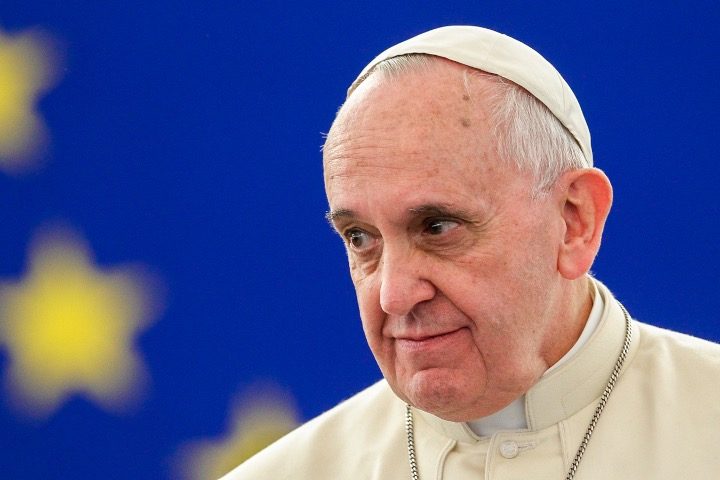
Pope Francis
Pope Francis approved a declaration titled “Dignitas Infinita,” released by the Vatican today. The declaration addresses many issues facing the Catholic Church in recent years — gender theory, surrogacy, transgender surgery, assisted suicide, and other topics.
The Vatican opposes gender theory, saying that its scientific validity is not certain and that it amounts to the “temptation to make oneself God,” stating:
Regarding gender theory, whose scientific coherence is the subject of considerable debate among experts, the Church recalls that human life in all its dimensions, both physical and spiritual, is a gift from God. This gift is to be accepted with gratitude and placed at the service of the good. Desiring a personal self-determination, as gender theory prescribes, apart from this fundamental truth that human life is a gift, amounts to a concession to the age-old temptation to make oneself God, entering into competition with the true God of love revealed to us in the Gospel.
While the Vatican opposes gender theory, it states clearly that it opposes all discrimination against individuals:
The Church wishes, first of all, “to reaffirm that every person, regardless of sexual orientation, ought to be respected in his or her dignity and treated with consideration, while ‘every sign of unjust discrimination’ is to be carefully avoided, particularly any form of aggression and violence.”
On the issue of transgender surgery, Pope Francis said that protecting humanity requires respecting it as it was created, stating:
The dignity of the body cannot be considered inferior to that of the person as such. The Catechism of the Catholic Church expressly invites us to recognize that “the human body shares in the dignity of ‘the image of God.’” Such a truth deserves to be remembered, especially when it comes to sex change, for humans are inseparably composed of both body and soul. In this, the body serves as the living context in which the interiority of the soul unfolds and manifests itself, as it does also through the network of human relationships. Constituting the person’s being, the soul and the body both participate in the dignity that characterizes every human…. Teaching about the need to respect the natural order of the human person, Pope Francis affirmed that “creation is prior to us and must be received as a gift. At the same time, we are called to protect our humanity, and this means, in the first place, accepting it and respecting it as it was created.” It follows that any sex-change intervention, as a rule, risks threatening the unique dignity the person has received from the moment of conception.
The declaration also stated opposition to surrogacy, as it turns a mother’s womb into an object of trafficking and violates the dignity of both child and mother:
Pope Francis’s words have a singular clarity: “The path to peace calls for respect for life, for every human life, starting with the life of the unborn child in the mother’s womb, which cannot be suppressed or turned into an object of trafficking. In this regard, I deem deplorable the practice of so-called surrogate motherhood, which represents a grave violation of the dignity of the woman and the child, based on the exploitation of situations of the mother’s material needs. A child is always a gift and never the basis of a commercial contract. Consequently, I express my hope for an effort by the international community to prohibit this practice universally.”
First and foremost, the practice of surrogacy violates the dignity of the child. Indeed, every child possesses an intangible dignity that is clearly expressed—albeit in a unique and differentiated way—at every stage of his or her life: from the moment of conception, at birth, growing up as a boy or girl, and becoming an adult.
Surrogacy also violates the dignity of the woman, whether she is coerced into it or chooses to subject herself to it freely. For, in this practice, the woman is detached from the child growing in her and becomes a mere means subservient to the arbitrary gain or desire of others.
